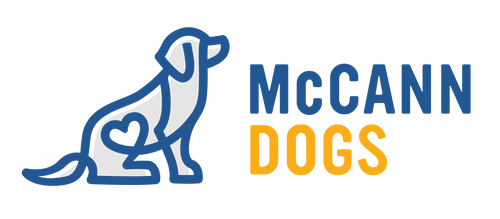Today we are going to tackle a very controversial subject that is near and dear to our hearts. This one will definitely raise some eyebrows. Is your dog fat? Obesity in dogs is dangerous and can lead to:
- Heart disease
- Increased blood pressure
- Osteoarthritis and other joint disorders
- Respiratory disorders
- Digestive disorders
- Reproductive issues
- Decreased mobility
We see a lot of dogs every week and a good portion of them are carrying too much weight. Whether they are chunky or obese, it's dangerous to allow your dog to be overweight. Estimation is that 45% of dogs in Canada are overweight. We often hear of other industry professionals condoning the condition of overweight dogs. This makes it very difficult for people to identify whether their dogs need to lose a few pounds.
Dogs who are involved in sports are at a greater risk for injury if they are overweight. Overweight sport dogs are at a greater risk for soft-tissue damage, ligament strains or tears, and even ruptures. If you think in human terms, when was the last time you saw an overweight sprinter or tri-athlete?
How Do You Know if Your Dog Is Overweight
While there will be a range of weights that people are comfortable keeping their dogs at, you should always be able to feel ribs and spine with a light touch. There is also variety within breed type. Some breeds, like Sight Hounds, are intentionally kept thinner. Breed specifics are good to know for your individual dog to ensure you are keeping them at a healthy weight. Below are some images to help you determine your dog's overall condition.

Why is your dog overweight?
A few common things that we see when looking at overweight dogs.
- Feeding the bag directive based on your dog's current weight
The directions on any bag of food should be followed for the dog's ideal condition, not for the dog's current weight. If your dog is 10 pounds overweight at 80 pounds, you should be feeding for a 70 pound dog, I.e. the weight the dog should be, not the 80 pounds that they are. - Feeding a high activity food to a dog who is not active
There are an abundance of choices in the pet food market. Be sure you match appropriate fat and protein levels of the food you choose to the individual dog. Too much for your dog's activity level can lead to weight gain. In addition, feeding a low grade food with an excessive amount of carbs can also lead to weight gain. - Feeding puppy food too long
Talk to your dog's breeder about how long you should keep them on puppy food VS adult food. Typically, most larger breeds should be switched to adult food faster than smaller breeds. In addition to obesity, feeding puppy food for too long a period can cause large breeds to grow more rapidly than is ideal, leading to other problems such as Panosteitis (growing pains) - Feeding too many table scraps
It's hard to say no to those eyes... but for the dog's health, you must! If you find you or your family are giving your dog copious amounts of table scraps, adjust the amount of their own food that they are getting to allow for the extra calories. - Free Feeding
A lot of dogs will eat until they feel sick. If you allow your dog unlimited access to food, often they'll ingest far more calories than are necessary. Feed a set amount that will suit your dog's size and activity level to keep their weight under control - Medical Condition
There are many medical reasons that your dog may be overweight. Hypothyroid is very common in dogs and quite easy to get under control with the right meds. If you find that there is no obvious reason for your dog to be heavy, a trip to the vets for bloodwork may be in order to rule out any physical ailments.
Whatever the reason, for your dog's safety and overall good health, it's important to get their weight back on track.
Happy training!

